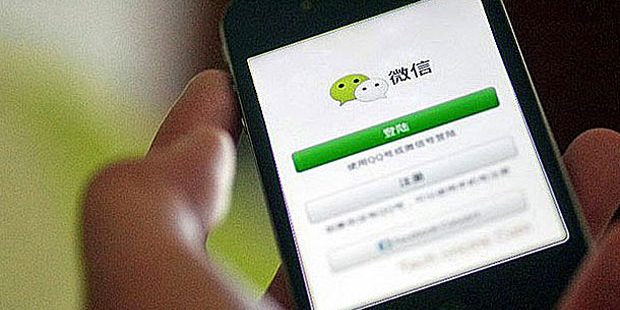China’s massively popular social media platform WeChat appears to have further tightened requirements for user registration, demanding access to all files and media content, and potentially giving the authorities access to everything on a user’s smartphone, RFA has learned.
A newly registered WeChat account resulted in a pop-up request on Thursday, calling for permission to access the device’s “photos, media library, and file content.”
Pressing “Deny” resulted in a further pop-up asking to turn on “storage space permissions.” Denying such permission resulted in the registration being aborted.
An internet service user in Guangzhou who has technical knowledge of WeChat’s functions told RFA that the app has evolved from a simple chat client to a form of spyware that monitors users’ behavior.
“If you use WeChat, there will be nothing private left on your phone,” Hu said. “Anything on your phone can be read by the app, which can even take control of the phone’s camera and microphone.”
“If the government wants to see what you are doing, or wants to hear what you are talking about, it can monitor you through WeChat, so it’s a very powerful tool,” he said.
Hu said users would be better off keeping at least one phone that didn’t have the app installed.
Meanwhile, WeChat users in China were told to log back in to their WeChat accounts, a process that included a “security check.”
The security check included a check on whether or not the user had acted as secondary authentication for another person in the past month.
It also included a new requirement that WeChat’s payments function be installed, and requested that the user scan a QR code sent by the app.
Secondary authentications
A WeChat user surnamed Liu said the QR code appeared to be a measure intended to stop people acting as a secondary authentication for people setting up new accounts.
WeChat has increasingly shut down users’ accounts if they post, repost, or comment on content deemed subversive or “undesirable” by the ruling Chinese Communist Party’s censors. The new layer of security would potentially make it harder for such users to immediately open a new account again, as they were previously able to do.
“It gets you to scan a QR code, and if your smartphone has scanned a similar code, it won’t be able to scan the code [and unlock the user’s WeChat account] for at least six months,” Liu said.
“You won’t be able to scan anyone else’s code, either, and you have to bundle the Alipay function to be able to scan the QR code.”
A Beijing resident surnamed Guo said there are concerns among users about the security of their banking details on the Alipay platform.
“For example, your account details are linked to a physical bank card, the details of which are stored on the Alipay platform,” Guo said. “They won’t let you use the platform until you verify it.”
In May 2017, Russia blocked access to WeChat because it did not provide contact details for Russia’s register of “organizers of information distribution on the internet.”
The ban was later lifted ahead of a visit by Russian president Vladimir Putin to China.
Reported by Qiao Long for RFA’s Mandarin Service. Translated and edited by Luisetta Mudie.







